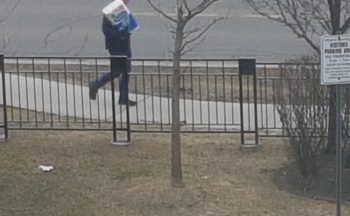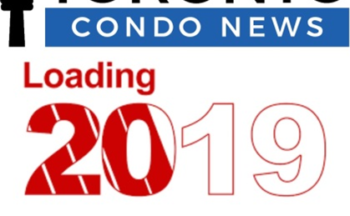 February 2022
February 2022
Remember last year when everyone was excited for 2021 and the end of COVID? We could finally get back to normal. While vaccines helped, we’re not out of the woods yet. The combination of COVID, inflation, shortages, staffing challenges and rising costs will test us all.
COVID does not appear to be going away. We will have to learn to live with it as we have done with many other viruses. After two years believing otherwise, avoiding people and acting as if COVID will miraculously disappear, this is the year our communities begin making sustainable long-term decisions about maintaining our homes.
Over the past year cities were declared ‘dead’ as people moved out. Then people returned. Lockdowns and restrictions were imposed, eased and re-imposed. The Champlain Towers South condominium collapse in Surfside, Florida was followed by recognition that aging high-rise buildings require a greater level of care than they have been receiving. Climate change, not to be forgotten, has been recognized for how it impacts on the structural integrity of our high-rise homes, and also the costs of keeping that home comfortable and supplied with clean air. It becomes increasingly clear that deferring building maintenance is not worth the short-term financial savings.
“It’s the Economy, Stupid”, the main theme of President Clinton’s successful campaign from 20 years ago, is as relevant today as it was then. Increasing costs, the result of all that borrowed money governments have been spending and distributing, were anticipated. Inflation, also expected, is on the rise. How this impacts on our high-rise communities is less clearly understood. At a basic level, rising interest rates deliver improved returns for invested reserve fund balances, but are insufficient to pay the higher costs from resulting inflation and cost escalation.
In the coming year, high-rise communities will be dealing with concerns that are mostly related to pandemic measures.
Inflation
 A cost of all that borrowed money our governments have been spending and distributing is inflation. While low based on historical averages, current inflation is the highest many have lived through. Challenging as this will be, condominium corporation cost increases are likely to inflate at a higher rate which has been estimated at 19 percent for the year ending August 2021.
A cost of all that borrowed money our governments have been spending and distributing is inflation. While low based on historical averages, current inflation is the highest many have lived through. Challenging as this will be, condominium corporation cost increases are likely to inflate at a higher rate which has been estimated at 19 percent for the year ending August 2021.
There will be shortages as supply systems readjust, permanent increases to building costs from pandemic measures, the impact of global warming, and higher payroll costs as employees demand more because of rising living expenses.
Reserve Funds
Invested reserve fund balances can anticipate higher returns as interest rates increase, although not enough to compensate for increased costs. With reserve fund studies updated every three years, some communities that “pretend” costs have not increased until such time as their study is updated will place their corporations at greater financial risk. Better to implement annual five percent increases over the course of three years than require a 20 percent increase in year four or a large special assessment.
Pandemic Measures
Science is clearer that some measures we’ve used to fight COVID offer little to no benefit. Additional staffing for cleaning and disinfecting, while useful overall, do little to fight a virus that doesn’t survive for long on surfaces or one that is airborne. Physical barriers, such as those at concierge desks, can restrict air flow and prevent a building’s HVAC system from operating as effectively.
Improvements in the operation of HVAC systems, which provide fresh air to a building and redistribute air among units through vents and ducts offer long-term benefits. Depending on your community, this may require equipment upgrades, more frequent maintenance, and better cleaning of ducts and vents through which air travels.
Communities that have reduced costs by avoiding these measures are more susceptible to health problems of all types regardless of their level of surface cleaning.
COVID has accelerated the work from home movement. Many more will continue working from home regardless of the pandemic. Our HVAC systems must support more people at home during daytime hours as climate change places further demands by making it harder to keep our homes and home offices comfortable and safe regardless of weather conditions. There will continue to be greater demands on common areas and waste management, and heavier use of electricity and water, from more people spending more time at home.
The demand for flex space, home space that can serve as a work area during the day and recreational space at other times, will continue to grow both in the home and for common areas.
It is unlikely we will ever return to the post-pandemic status. What were thought to have been temporary changes may have become permanent.
Personal Finances and Condo Fees
For two years many have been paid by government to remain at home, or have been allowed to work from home by their employer. They have saved much by not travelling while reducing personal expenditures for clothing, eating out, entertainment and travel. More people working at home in their condominium means higher expenses for the corporation in the form of utilities, elevator maintenance, cleaning, waste management and general repairs. The corporation must recoup these funds and prepare for all other increased expenditures. While higher condo fees are likely to be opposed by many, this will be just another way that personal finances adjust in response to pandemic measures.
 The coming year will be one of revised expectations for how to best manage our high-rise communities. There is no excuse for being unprepared for a future that can and should be planned for.
The coming year will be one of revised expectations for how to best manage our high-rise communities. There is no excuse for being unprepared for a future that can and should be planned for.







